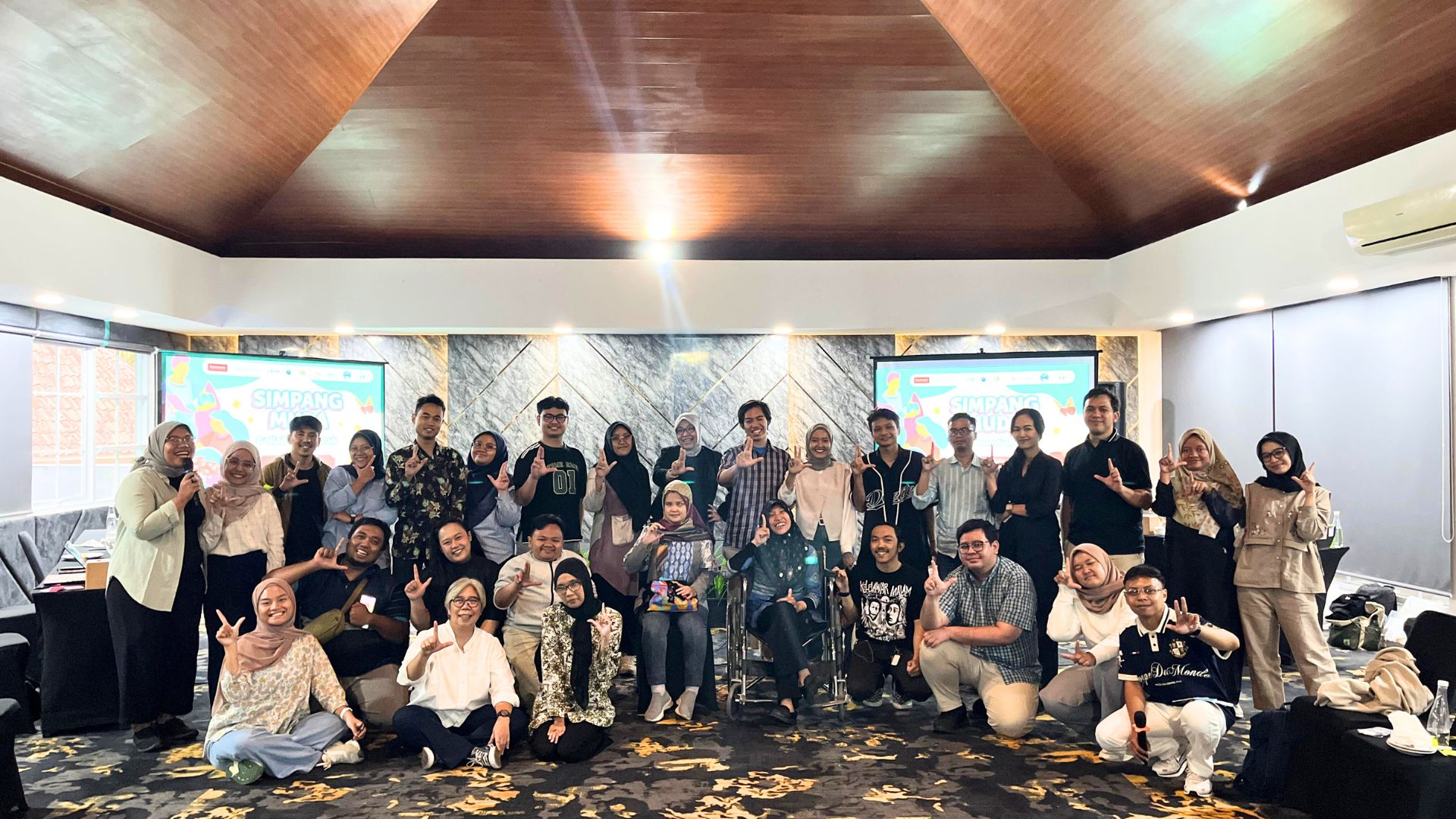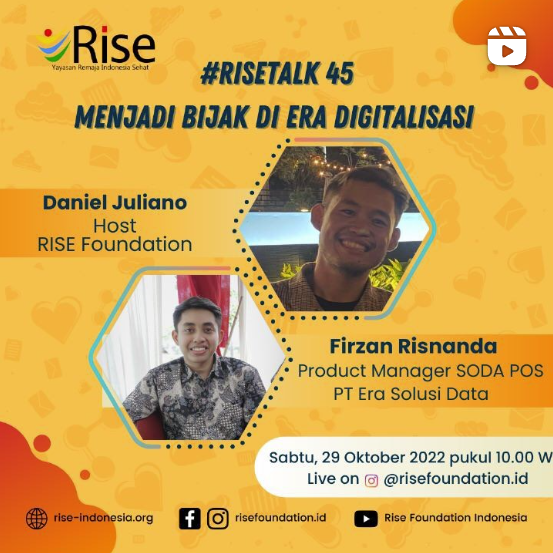
Hello, Sobat Remaja!
In RISETalk 40, we explored “Inclusive Education for Diverse Youth” alongside Mr. Jonna Aman Damanik. Mr. Jonna is a Commissioner of the National Commission for Disabilities of the Republic of Indonesia.
During the RISETalk 40 discussion, Mr. Jonna stated that one of the government’s priorities to realize the 2045 Golden Indonesia vision is to ensure high-quality infrastructure and human resources. The only way to produce high-quality human resources is through education.
Education is a right for all Indonesian citizens, without exception, including those with disabilities. Data indicates that only 18% of the 1.6 million children with disabilities received inclusive education services. Out of this 18%, 115,000 children attend Sekolah Luar Biasa (lit. Extraordinary School), while 299,000 others are enrolled in regular schools that offer inclusive education.
It is important to understand that inclusive education is an approach where students with disabilities learn alongside other students in the same classrooms at local schools. This inclusive education adheres to the principle of equality in education.
The Constitution in Article 31 Paragraph 1 mandates that every citizen has the right to education. In compliance with Decree Number 25 of 2009, every general education service provider is required to also offer special services for person with disabilities. The regulation aligns with the UN principle of “leave no one behind,” which stresses the importance of eliminating discrimination against all individuals, irrespective of their circumstances. All people with disabilities who reach school age have the right to choose between attending a Sekolah Luar Biasa (Special Education), or a regular (inclusive) school.
In reality, youth with disabilities frequently face discrimination within educational services. Many youth with disabilities have not been able to access their right to education because the curriculum fails to address the diverse range of disabilities and accessibility needs. The quality of special education services for person with disabilities is also linked to the caliber of teachers and the adequacy of learning support facilities.
Education is a right for all Indonesian citizens, without exception, including those with disabilities. Data indicates that only 18% of the 1.6 million children with disabilities received inclusive education services. Out of this 18%, 115,000 children attend Sekolah Luar Biasa (lit. Extraordinary School), while 299,000 others are enrolled in regular schools that offer inclusive education.
It is important to understand that inclusive education is an approach where students with disabilities learn alongside other students in the same classrooms at local schools. This inclusive education adheres to the principle of equality in education.
The Constitution in Article 31 Paragraph 1 mandates that every citizen has the right to education. In compliance with Decree Number 25 of 2009, every general education service provider is required to also offer special services for person with disabilities. The regulation aligns with the UN principle of “leave no one behind,” which stresses the importance of eliminating discrimination against all individuals, irrespective of their circumstances. All people with disabilities who reach school age have the right to choose between attending a Sekolah Luar Biasa (Special Education), or a regular (inclusive) school.
In reality, youth with disabilities frequently face discrimination within educational services. Many youth with disabilities have not been able to access their right to education because the curriculum fails to address the diverse range of disabilities and accessibility needs. The quality of special education services for person with disabilities is also linked to the caliber of teachers and the adequacy of learning support facilities.

